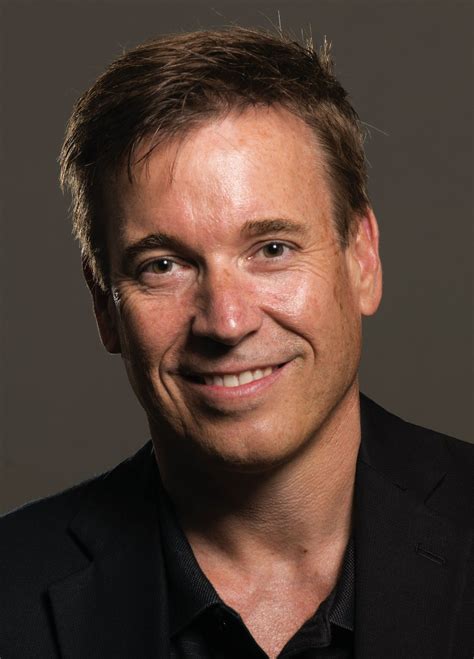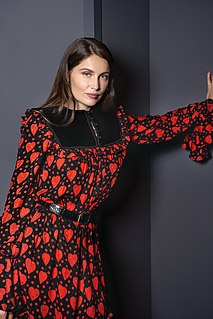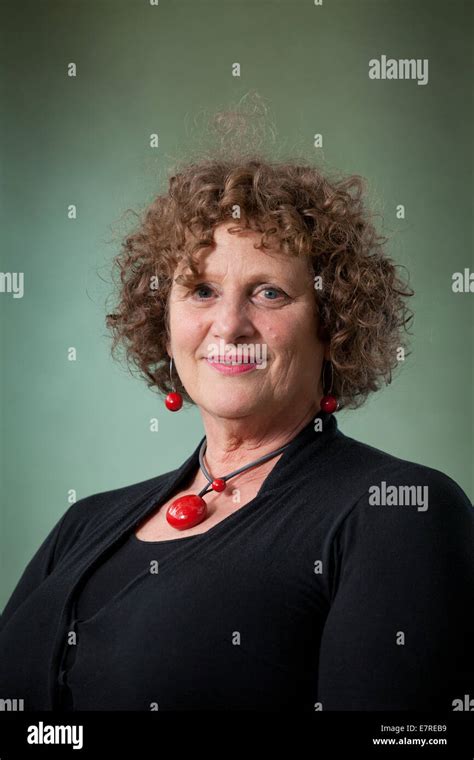A Quote by Joby Warrick
'Triple Agent' is a different kind of read because it is, at its core, a pure narrative, the story of an intelligence operation that unfolds over the course of a year and then goes badly wrong. There's a lot of 'news' in the book, including an account of drone warfare that is as detailed, in my humble opinion, as any in the open-source arena.
Related Quotes
Say you have a headline like "Mountain Bike Stolen," and then you read the story, read another story about it the next day, and then the next week, and then the next year. News is a process of expansion, the filling in of detail, and making narrative connections - not based on chronology, but based on features of the story. There are narrative connections made between props, between characters, between situations, and so forth.
A writer writes a book. People read it. You don't know what they're reading, really. You read a review and think, "That is so inaccurate. You can't have been reading my book with any kind of attention, because that is all wrong, that's even the wrong name you're including there." But these reviewers have been diminished in importance, the work is so little respected. If you're reviewed by a real critic, by James Wood or Louis Menand, then you get something that is informed, interesting, and highly articulate. But the average review doesn't have that kind of depth anymore.
Thomas Hardy's Tess of the d'Urbervilles is a novel that I have read over and over and over again. Tess is a pure child who has an inner glow none of the others in the book possess. They reject her because she is different, and they try in every possible manner to destroy her, because they are jealous. It is an extraordinary love story.
I was doing a lot of web design at the time. And anybody that has an agent thinks, "Why do I need an agent?" Maybe it's a little different as an actor - of course you need an agent - but any kind of agency that's selling something for you, you think, "Why can't I sell this myself? It doesn't make sense."
I think my sensibilities about storytelling and character just automatically come into play when I'm trying to work on any kind of narrative. For me, it doesn't really matter what the source of the narrative is. I will be looking for ways to make it into an intriguing story with empathetic characters.
You need to have a reader's sympathy in order to accomplish anything. It's like at a reading, I find it's better to read something funny than to read something tragic. It just goes over better because you have a finite amount of time with somebody. Of course, in a book, you have a lot of time. But you still do want to make a certain impression right when you begin.
It wasn't exactly a cattle call. I had an agent, and they were seeing people for the parts, so my agent said, "Here's the script, see if there's anything that speaks to you." And I did, and I called my agent and said, "I think this character Data is kind of interesting," and she said, "Well, okay, I'll get you the appointment with Junie Lowry." I had to read with the casting agent first, 'cause nobody really knew me then. Then after that, I had, I think, six different auditions for the role. And finally it was me [on Star Trek].
I think of myself as a narrative artist. I don't think of myself as a novelist or screenwriter or playwright. All of those modalities of processing and experiencing narrative are obviously very different, and I'm not sure that I prefer any one to the other. I think the novel gives you the opportunity to have a kind of interiority that you can't have in the theater, which is pure exteriority.
You want to know why I am the perfect champion? Because you can take the strength of John Cena; the intelligence of Triple H; the desire of Cena; the athleticism of Triple H; the determination of Cena; the ruthlessness of Triple H... and if you combine these attributes into one person, you get Randy Orton. The only difference is that I have one thing that neither Cena nor Triple H has: the WWE Championship.
I'm confused about who the news belongs to. I always have it in my head that if your name's in the news, then the news should be paying you. Because it's your news and they're taking it and selling it as their product. ...If people didn't give the news their news, and if everybody kept their news to themselves, the news wouldn't have any news.
Coming from a sort of very rigid European type of training to this culture which is just a little more open - a lot more open, and kind of curious, and asking different sorts of questions.Because the problem for me was that the European modernist movement in the '70s was all about right or wrong. Some things were right and you were dealing with the truth, as it were, and then some things were wrong and therefore not allowed.

































